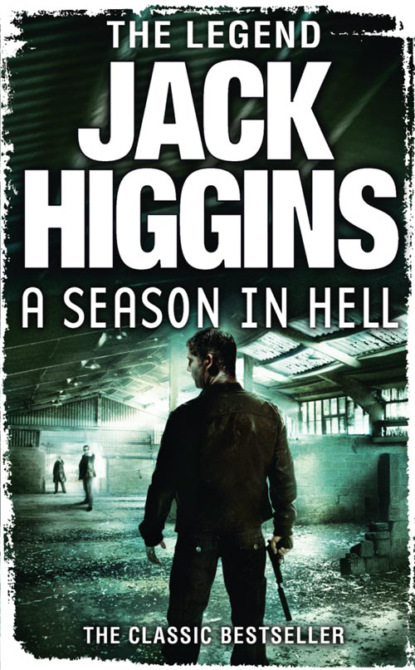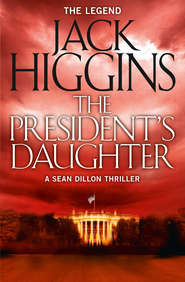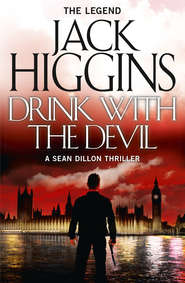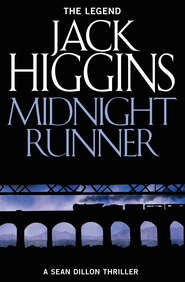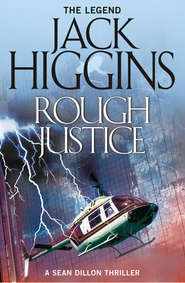По всем вопросам обращайтесь на: info@litportal.ru
(©) 2003-2024.
✖
A Season in Hell
Автор
Год написания книги
2018
Настройки чтения
Размер шрифта
Высота строк
Поля
He walked away along the waterfront thinking about Valentin. A nasty bit of work. Rubbish, of course. No style. A true wharf rat, but a rat was still a rat and needed watching. He turned into the first all-night café he came to five minutes later, changing a hundred-franc note at the bar, going into a telephone booth in the corner where he dialled a London number.
He spoke quietly into the tape recorder at the other end. ‘Mr Smith. Jago here.’ He repeated the number of the telephone he was using twice, replaced the receiver and lit a cigarette.
They had always operated this way. Smith with his answerphone and presumably an automatic bleeper to alert him to messages so that he was always the one to phone you. Surprisingly simple and no way to trace him. Foolproof.
The phone rang and Jago picked it up. ‘Jago.’
‘Smith here.’ The voice, as usual, was muffled, disguised. ‘How are you?’
‘Fine.’
‘Any problems?’
‘None. Everything as normal. The consignment leaves Vigny at one tomorrow.’
‘Excellent. Our friends will pick it up as usual. It should be making us money within a week.’
‘That’s good.’
‘Your account will be credited with the usual amount plus ten per cent on the last day of the month.’
‘That’s nice.’
‘The labourer is worthy of his hire …’
‘And all that good old British nonsense.’ Jago laughed.
‘Exactly. I’ll be in touch.’
Jago replaced the receiver and returned to the bar where he had a quick cognac. It was still raining when he went out into the street, but he didn’t mind that. It made him feel good and he was whistling again as he walked away along the uneven pavement.
But at Vigny the following afternoon the weather was not good, low cloud and rain and a ground mist that reduced visibility to four hundred yards. It was only a small airfield with a control tower and two hangars. Valentin and Agnès stayed in her Citroën on the edge of the runway and watched as the hearse arrived and the coffin was manoeuvred inside the small Cessna plane. The hearse departed. The pilot disappeared inside the control tower.
‘It doesn’t look good,’ Agnès said.
‘I know. We could be here all day,’ Valentin told her. ‘I’ll see what’s happening.’
He put a raincoat over his shoulders and strolled across to the main hangar where he found a lone mechanic in stained white overalls working on a Piper Comanche.
‘Cigarette?’ Valentin offered him a Gauloise. ‘My English cousin is expecting the body of his son this afternoon. He asked me to check things out. I saw the hearse arrive. I mean, is the flight on or not?’
‘A temporary hitch,’ the mechanic told him. ‘No trouble taking off here, but it’s not so good at the other end. The captain tells me he’s expecting clearance around four o’clock.’
‘Thanks.’ Valentin took a half-bottle of whisky from his pocket. ‘Help yourself. You don’t mind if I use your phone?’
The mechanic drank from the bottle with enthusiasm. He wiped his mouth with the back of his hand. ‘I don’t pay the bills; be my guest.’
Valentin took out a slip of paper and dialled the number on it. It was a Kent exchange which he knew was south of London, but other than that he knew nothing of the mysterious Hartley Brothers.
The voice at the other end simply said, ‘Yes?’
Valentin replied in his bad English. ‘Hartley Brothers? Vigny here.’
The voice sharpened. ‘Any problem?’
‘Yes, the weather, but they expect to be away at four.’
‘Good. Call me again to confirm.’
Valentin nodded to the mechanic. ‘Keep the Scotch. I’ll be back.’
He returned to Agnès in the Citroën. ‘That’s it. All off until four. Let’s try that café down the road.’
The man he had been speaking to replaced the telephone and clasped his hands together, leaning forward towards the weeping woman in front of him. He was sixty and slightly balding, wore gold pince-nez glasses, black jacket and tie, white shirt pristine, striped trousers immaculate. The gold-painted name plate on his desk said: Asa Bird.
‘Mrs Davies. I can assure you that here at Deepdene, your husband will receive only the very best attention. His ashes may be strewn in our own garden of rest if you wish.’
The room was half in shadows on that dull November afternoon but the flowers massed in the corners, the oak panelling, were reassuring, as was his soothing, slightly avuncular voice that had a touch of the parson about it.
‘That would be wonderful.’
He patted her hand. ‘Just a few formalities, forms to fill in. Regulations, I’m afraid.’
He pressed a bell on his desk, sat back, selected a handkerchief and proceeded to polish his glasses, standing up and peering out of the window into the immaculate garden. It always filled him with conscious pleasure. Not bad for a boy born on the wrong side of the blanket in the worst slum in Liverpool that had fitted him for nothing but a life of petty crime. Eighteen offences by the age of twenty-four. Everything from larceny to, although he preferred to forget about it now, male prostitution, which had led him to the chance of a lifetime, his relationship with the ageing Henry Brown, an undertaker with his own long-
established firm in Manchester.
He’d taken young Asa in, not that that was his name then, and groomed him in every way. Asa had loved the death business at once, taken to it like a duck to water, soon becoming an expert at every aspect, including embalming. And then old Mr Henry had died leaving only Mrs Brown who had never had a son of her own and doted on Asa, making perhaps only one mistake. Told him that she had made him her sole heir, an error which had led to her untimely death from pneumonia, helped on her way by Asa’s unfortunately leaving the windows of her room wide open on a December night after first removing the bedclothes.
Mrs Brown’s thoughtful bequest had taken him to Deepdene and his own establishment, developed from an eighteenth-century country house. A garden of rest, with its own cremation facilities. You wouldn’t find better in California, and his association with the mysterious Mr Smith hadn’t done him any harm.
The door opened and a handsome young black man entered. He was tall and muscular and the well-cut chauffeur’s uniform showed him to advantage. ‘You rang, Mr Bird?’
‘Yes, Albert. The package from France. It will be later than we thought.’
‘That’s a shame, Mr Bird.’
‘Oh, I expect we’ll manage. Is the transport ready?’
‘In the rear garage, sir.’
‘Good. I’ll just have a look.’ Bird turned to Mrs Davies. ‘I’ll leave you for a few minutes to complete those forms and then I’ll help you choose a suitable coffin.’
She nodded gratefully. He patted her shoulder and went out. Albert opened a large umbrella and held it over his head as they crossed the cobbled yard.
‘Bloody weather,’ Bird said. ‘Always seems to be pissing down these days.’
‘Dreadful, Mr Bird,’ Albert agreed and got the garage door open. When he pulled a dustsheet away a gleaming black hearse stood revealed. ‘There you are.’





